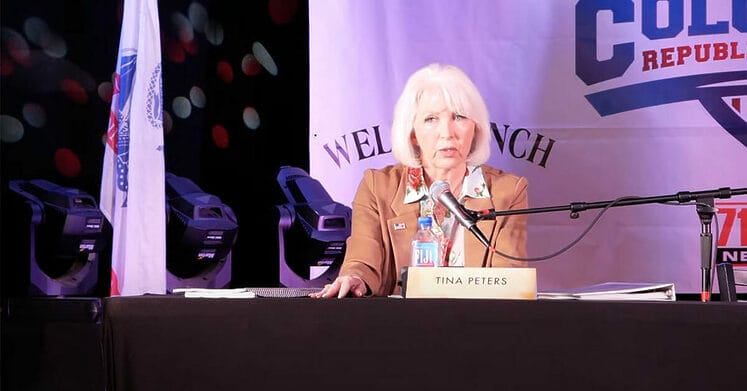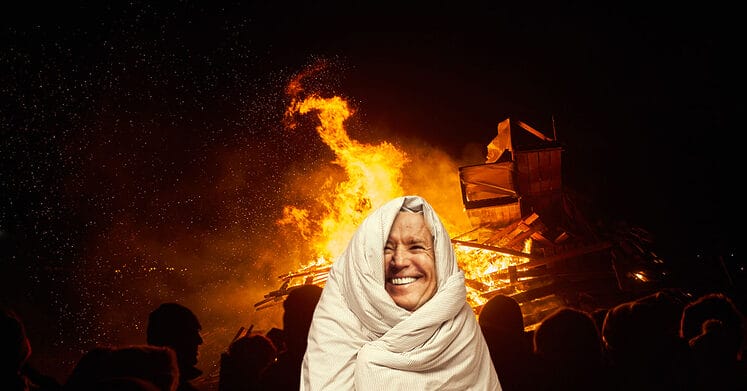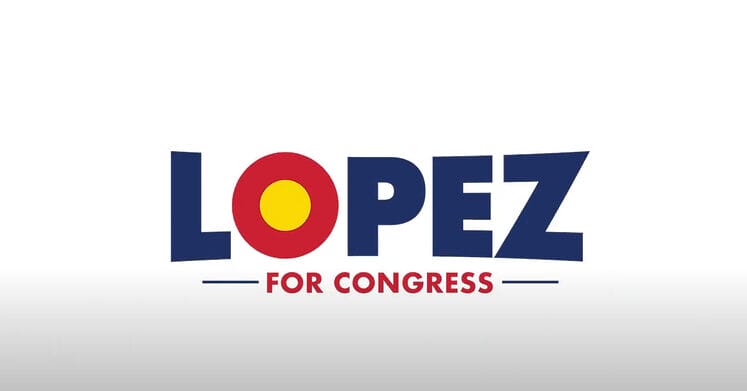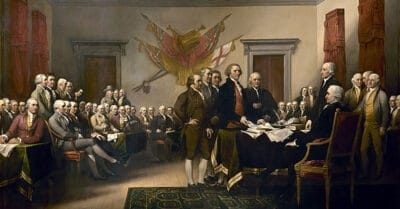On a recent Saturday afternoon, three Colorado Republican Party women’s organizations cosponsored a candidates’ debate, a “Colorado Republican Rumble,” at the Grizzly Rose tavern and concert center in Denver. It was presented in cooperation with KNUS710 radio, with talk show personality George Brauchler as the principal moderator.
Almost 250 northern Colorado Republicans attended the event, and a video is up on YouTube and the KNUS710 Radio webpage.
The rumbles were contentious but well short of an earthquake. The program showcased fourteen Republican candidates vying for votes in seven different races in the upcoming June 28 Republican Primary. Three races are uncontested, but the contests for Governor, Secretary of State, U.S. Representative in CD8, and US Senator are anything but placid.
Unfortunately, the Colorado voters who will decide the winner in any close Republican Primary contest were not at the Grizzly Rose extravaganza … because they are not Republicans.
A panel of three moderators threw a mixed bag of questions at Republican candidates for four major offices: Colorado Governor, the new 8th District Congressional seat, Secretary of State, and United States Senator. The forum also included remarks by candidates in three uncontested races. Eighth Congressional District candidate Lori Saine was barred from participating in the debate because, supposedly, she did not RSVP in time, but she nonetheless came in a close 2nd among four candidates in the straw poll afterwards.
The event had a festive air of camaraderie about it, no doubt reflecting the growing Colorado Republican optimism about the November election. That upbeat mood is based not only on Colorado Democrats’ radical legislative agenda but the growing unpopularity of Joe Biden’s runaway inflation and a dozen other national embarrassments. The southwest border invasion, rising crime rates, and widely unpopular public education policies advocated by Democratic politicians — all combine to push President Biden’s favorability rating below 40% among independents, who now constitute 44% of Colorado’s registered voters.
The results of the debate’s afternoon straw poll were released an hour after the event ended.
U.S. SENATOR Rep. Ron Hanks — 119 (54%), Joe O’Dea 102 (46%)
GOVERNOR Heidi Ganahl — 138 (62%), Greg Lopez 85 (38%)
CD 8 Barb Kirkmeyer– 62 (34%), Lori Saine 53 (29%), Jan Kulmann 50 (27%), Tyler Alcorn 17 (10%)
SEC OF STATE Tina Peters — 88 (41%), Mike O’Donnell 78 (36%), Pam Anderson 48 (22%)
In the races with three or more candidates, no candidate won a clear majority at the Grizzly Rose.
Oh, but wait. As mentioned above, Colorado’s Republican voters aren’t the only voters who will be choosing the Republican Party nominees in the June 28 Republican Primary.
Since the adoption of the “Open Primary” in 2016 by passage of Proposition 108, Colorado’s unaffiliated voters can choose to vote in either the Republican or Democratic primary. The state’s 1.7 million unaffiliated voters will soon receive both Democrat and Republican ballots in the mail and can vote either ballot, but not both. In the 2020 primary election, more unaffiliated voters chose to cast a Republican ballot than a Democrat one. Because there are no serious Democrat Primary contests in 2022, that will happen again in 2022.
Colorado’s new Open Primary was adopted by a slim 53% majority of Colorado voters, and it fell below 50% approval in most counties that had more registered Republican voters than Democrat. It’s abundantly clear that most Republicans do not like the Open Primary. And yet, a clever “innovation” inserted into Proposition 108 requires an impossible 75% affirmative vote by the Republican Party’s governing body, the State Central Committee, in order to “opt out” of the Open Primary. The statutory language of Proposition 108 provides no option to return to a Republicans-only primary even if the Opt-Out vote someday achieves 75% support. Talk about a Catch 22!
As a result of that radical rewrite of Colorado election laws in Proposition 108, in the upcoming June 28 Republican Primary it would take an unprecedented 70% turnout among the Republican Party’s 956,000 registered voters to balance a mere 40% turnout by the state’s 1.7 million Unaffiliated voters casting Republican ballots. Even a low 20% participation by Unaffiliated voters in a Republican or Democrat Primary contest can easily change the outcome — that’s over 340,000 voters statewide and an average of over 40,000 votes in each of eight congressional districts.
Consider the new incentives created by the Open Primary for partisan meddling in the Democrat and Republican primaries. In fact, it’s already happening. There is now an organized effort in Colorado’s Congressional District 3 to persuade registered Democrats to temporarily change their registration to Unaffiliated so they can receive a Republican ballot in the mail and vote for the primary opponent of the Republican incumbent, Lauren Boebert.
The three-way Republican Primary contest for Secretary of State presents another attractive target for partisan meddling to benefit the controversial Democrat incumbent, Jena Griswold. Channeling 100,000 Unaffiliated votes to the Republican candidate thought to be the weakest November opponent for Griswold is undoubtedly a sweet temptation for Democrat strategists. Also, a well-funded Republican candidate might target a select subgroup of Unaffiliated voters with disinformation about his or her main primary opponent. Clearly, the candidate most likely to employ such disruptive but entirely legal tactics would be the candidate with the most money — or access to “dark money” — to be spent on last-minute attack pieces.
Will Colorado’s 1.7 million Unaffiliated voters study Republican candidates’ qualifications and policy ideas as closely as Republican Primary voters? Dream on, Mickey Mouse. There will not be a substantial number of any congressional district’s 200,000-plus unaffiliated voters attending Saturday afternoon or Tuesday evening debates hosted by local Republican organizations. Why bother? Their mailboxes and television screens will soon be full of helpful information designed to help those “independent” voters choose the Republican Party nominees.








Responses